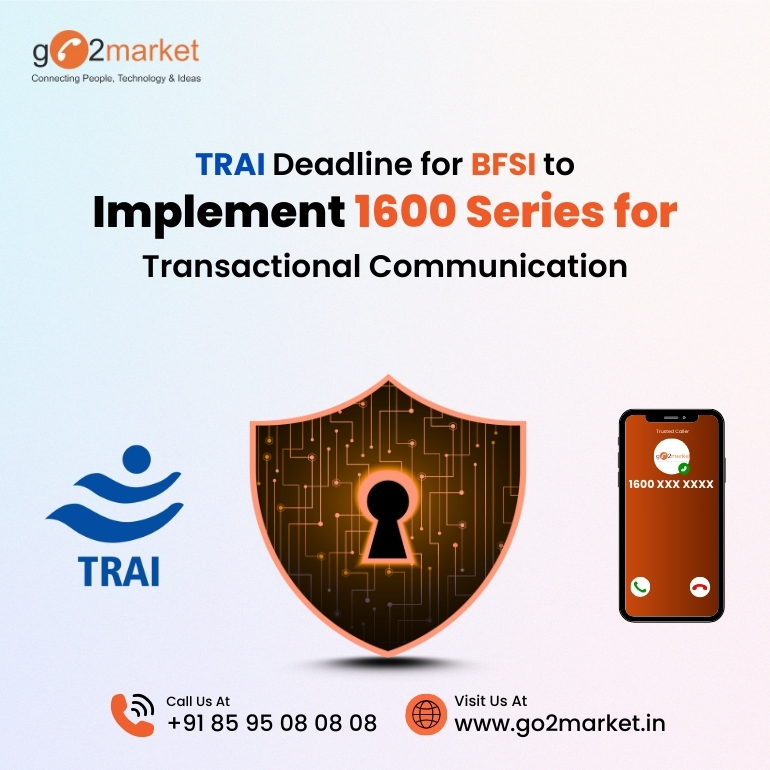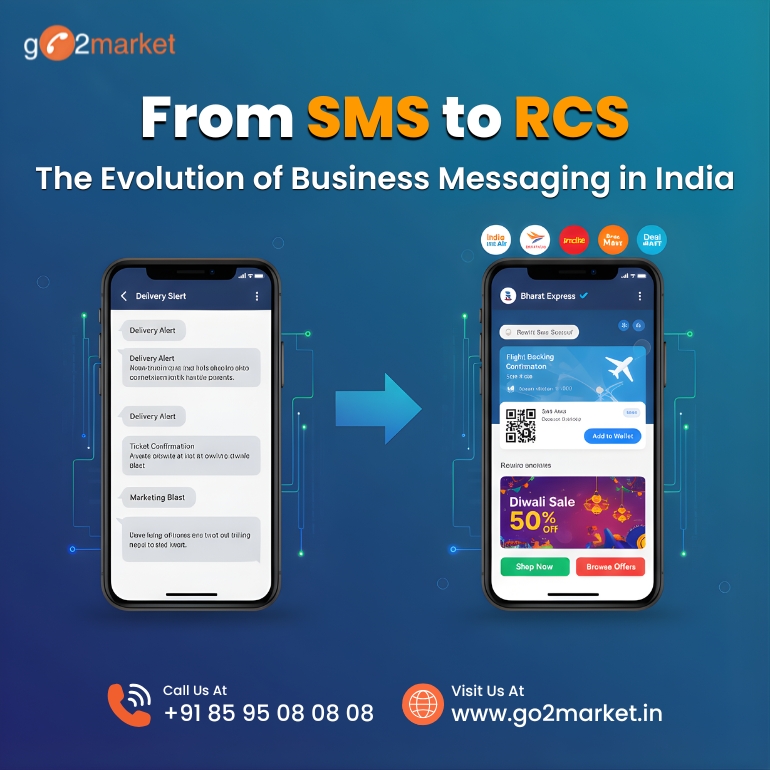India has been working continuously to strengthen its telecom ecosystem and ensure secure, transparent, and spam-free communication for mobile users. The Telecom Regulatory Authority of India (TRAI) has been at the forefront of this effort, introducing key reforms such as separate number series for promotional and transactional calls, along with the implementation of CNAP (Calling Name Presentation) at the telecom operator level.
These measures are aimed at creating a spam-free and trust-driven communication infrastructure. However, with the introduction of the 1600 series migration mandate, many businesses are now facing urgent compliance requirements. While awareness around these changes is still evolving, sectors such as BFSI, NBFCs, insurance companies, and share broking firms have already received regulatory notices, making it critical for them to implement the necessary changes to avoid service disruption and regulatory penalties. Read this detailed blog to understand the TRAI 160 series migration process and deadline.
What Is the TRAI 1600 Series Migration?
TRAI has mandated the use of the 1600 number series specifically for service and transactional voice calls made by enterprises to customers. This move aims to:
- Clearly distinguish service calls from promotional calls
- Reduce fraud, spoofing, and unsolicited communication
- Improve customer trust through verified caller identity (CNAP)
Enterprises currently using non-compliant or mixed-use numbers for transactional calls must migrate to the 1600 series within the prescribed timelines.
Key Compliance Challenges Businesses Are Facing
Many enterprises are struggling with:
- Understanding the difference between the 140 and 1600 series usage
- Multiple touchpoints for DLT registration, operator coordination, and testing
- Risk of call failures due to incorrect routing
- Limited internal expertise to manage telecom compliance changes
This is where a VNO-licensed CPaaS provider becomes critical.
Businesses Most Affected by the 160 Series Migration Deadline
1. BFSI & NBFCs
Banks and NBFCs rely heavily on outbound voice calls for:
- Transaction alerts
- Loan reminders and collections
- KYC and verification calls
- Customer support and service updates
Non-compliance can lead to call blocking, failed customer outreach, and regulatory scrutiny from RBI-aligned frameworks.
2. Insurance Companies
Insurance providers use voice calls extensively for:
- Policy issuance and renewals
- Claims verification
- Customer onboarding and servicing
The 1600 mandate directly affects insurers, as service calls must now originate from verified and compliant number series.
3. Stock Brokers & Wealth Management Firms
SEBI-regulated entities frequently communicate with customers for:
- Trade confirmations
- Margin calls
- Account servicing and compliance communication
Any disruption in transactional calling can directly impact trading operations and customer trust.
4. E-commerce & Logistics Platforms
Order confirmations, delivery coordination, and support calls fall under service communication. These businesses must ensure:
- Correct number series usage
- Template mapping where applicable
- Seamless migration without customer-facing disruptions
Any disruption in transactional calling can directly impact trading operations and customer trust.
5. Healthcare, Education & Utilities
Hospitals, EdTech platforms, and utility providers making appointment reminders, service notifications, or support calls are also impacted and must ensure their voice traffic is routed through compliant infrastructure like a 160 number series.
How Go2Market Helps Businesses with 1600 Series Compliance
As a DOT-recognized VNO-licensed CPaaS service provider, Go2Market offers end-to-end support for enterprises navigating the 1600 migration.
- Allocation and activation of 1600 series numbers
- Operator-level coordination and routing setup
- Testing and go-live support
DLT & Principal Entity (PE) Support
- PE registration assistance
- Voice and SMS template registration
- Header and entity mapping
- Ongoing compliance management
Unified Communication Platform
Go2Market enables businesses to manage:
- 140 & 1600 series calling from a single platform
- IVR, Cloud Call Center, and Voice APIs
- Bulk SMS, RCS, and WhatsApp Business API
- Call recordings, analytics, and audit trails
Compliance-First Architecture
- CNAP-ready infrastructure
- Operator-approved routing
- High call connect ratio
- Secure, scalable, and regulator-aligned systems
Risks of Delaying the 1600 Migration
Enterprises that delay migration may face:
- Call blocking or throttling by telecom operators
- Customer complaints due to missed service calls
- Regulatory notices and penalties
- Loss of brand trust and credibility
Early adoption ensures continuity, compliance, and a smoother customer experience.
Conclusion
In conclusion, we can say that the TRAI 1600 series migration is not just a regulatory requirement; it is a fundamental shift toward a cleaner, safer, and more trustworthy business communication ecosystem. For sectors where voice communication is critical, timely compliance implementation is essential. Our team manages the complete compliance lifecycle for 160 series implementations, from DLT onboarding and template approvals to number provisioning, consent handling, and audit-ready logs. By combining regulatory expertise with reliable telecom infrastructure, Go2Market ensures your customer communication remains trusted, compliant, and future-ready without operational disruption or regulatory risk. With our deep compliance expertise and unified CPaaS platform, Go2Market helps businesses migrate seamlessly, stay compliant, and future-proof their communication infrastructure. To know more about the process, connect with go2market at 8595080808 or visit us at www.go2market.in



.jpg)



